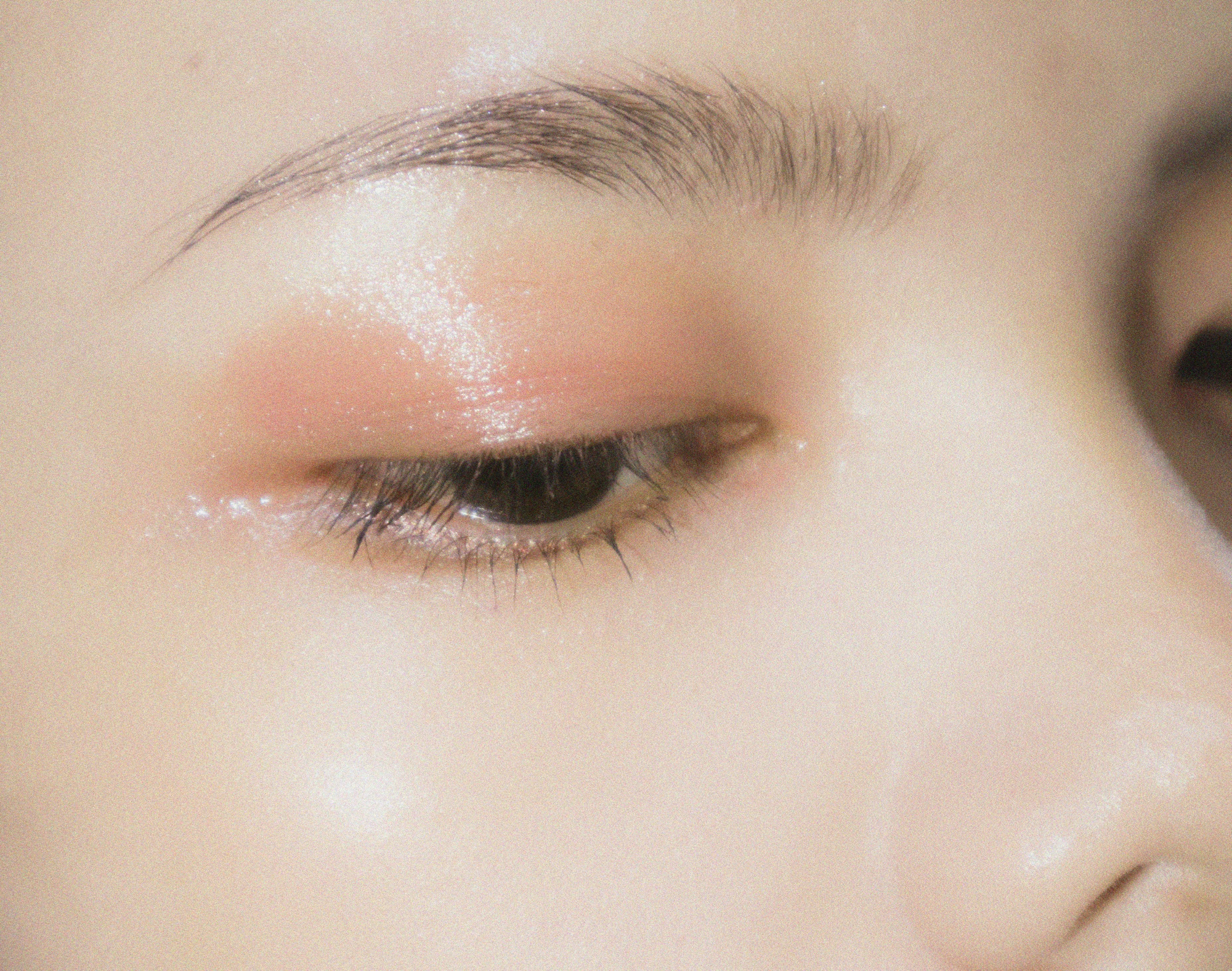Skincare is an essential ritual that mirrors the care and attention we give to our overall well-being. While we diligently seek out the latest products and regimens to enhance our skin’s health, it’s equally crucial to be aware of the pitfalls that can undermine our efforts. This guide sheds light on 11 skincare mistakes that are all too common yet easily avoidable. By steering clear of these skincare no-nos, you can ensure that your routine nurtures and protects your skin, paving the way for a clearer, more vibrant complexion. Whether you’re a skincare novice or a seasoned enthusiast, understanding what not to do is just as important as knowing the right steps to take in your skincare journey.
Over-Exfoliating
Exfoliating is essential for removing dead skin cells and promoting cell turnover, but overdoing it can harm your skin. Exfoliating too frequently or aggressively can strip the skin of its natural oils, leading to irritation, redness, and even breakouts. It is crucial to find the right balance and stick to exfoliating 1-2 times a week with a gentle scrub to avoid damaging your skin’s protective barrier and maintain a healthy glow.
Finding the Right Exfoliant
Choosing the appropriate exfoliant for your skin type is vital. For sensitive skin, consider using chemical exfoliants like AHAs (alpha hydroxy acids) which are gentler compared to physical scrubs. Those with oily or acne-prone skin may benefit more from BHA (beta hydroxy acid) exfoliants like salicylic acid. Always patch test new products to ensure compatibility with your skin.
Signs of Over-Exfoliation
If you notice increased sensitivity, redness, or flakiness, these may be signs of over-exfoliation. Adjust your routine immediately by reducing frequency or switching to a more hydrating exfoliant. Remember, more isn’t always better when it comes to exfoliating.
Not Removing Makeup Before Bed
Sleeping with makeup on can be detrimental to your skin’s health. Makeup residue left on the skin overnight can clog pores, trap bacteria, and lead to breakouts or skin irritation. It is vital to remove all traces of makeup before going to bed to allow your skin to breathe and regenerate during the night, preventing potential skin problems in the long run.
Effective Makeup Removal Techniques
Consider using a two-step cleansing method: start with a gentle makeup remover or cleansing oil to dissolve makeup, followed by a water-based cleanser to remove any remaining impurities. This method ensures your skin is thoroughly cleansed without harsh scrubbing.
Common Mistakes in Makeup Removal
Rushing the cleansing process or using wipes as a primary method can leave residues that contribute to clogged pores. Invest in quality cleansers and take the time to gently massage them into your skin for a thorough cleanse.
Skipping Sunscreen
Sunscreen is a non-negotiable step in any skincare routine. Exposure to harmful UV rays can accelerate skin aging, cause sunburn, and increase the risk of skin cancer. Whether it’s sunny or cloudy outside, make sure to apply a broad-spectrum sunscreen with at least SPF 30 every day. Protecting your skin from UV damage is one of the most effective ways to maintain its health and youthful appearance.
Choosing the Right Sunscreen
Opt for a broad-spectrum sunscreen that protects against both UVA and UVB rays. If you have oily skin, look for oil-free or gel-based formulas. For sensitive skin, mineral sunscreens with zinc oxide or titanium dioxide are less likely to cause irritation.
Common Sunscreen Missteps
Many people forget to reapply sunscreen throughout the day, especially after sweating or swimming. Keep a small bottle in your bag for touch-ups, and consider using powders or sprays for easy reapplication over makeup.
Using Dirty Makeup Brushes
Your makeup tools can harbor dirt, oil, and bacteria, which may transfer to your skin and lead to acne or skin infections. Regularly cleaning your makeup brushes and sponges is crucial for maintaining good skin hygiene. By keeping your tools clean, you can prevent unwanted breakouts and ensure that your makeup application is smooth and flawless.
How to Properly Clean Brushes
Use a gentle cleanser or brush cleaning solution to wash your brushes at least once a week. Rinse them thoroughly, reshape them, and lay them flat to dry. Avoid soaking them in water, as this can loosen the glue that holds them together.
The Consequences of Neglect
Ignoring brush hygiene not only affects skin health but also compromises the performance of makeup products. Dirty brushes can alter the color and consistency of your makeup, leading to a less polished look.
Not Moisturizing Properly
Many people with oily or acne-prone skin tend to skip moisturizer, thinking it will make their skin more greasy. However, even oily skin needs hydration to stay balanced and healthy. Skipping moisturizer can compromise the skin’s moisture barrier, leading to dryness, flakiness, and potentially increased oil production as the skin tries to compensate. Choose a lightweight, non-comedogenic moisturizer that suits your skin type to keep your skin hydrated and supple without clogging pores.
Selecting the Right Moisturizer
For dry skin, opt for rich, creamy formulas with ingredients like hyaluronic acid or ceramides. Oily skin types can benefit from gel-based or oil-free moisturizers. Always test new products on a small area to ensure they do not cause breakouts.
The Hydration Myth
Contrary to popular belief, over-moisturizing is also a concern. Applying too much product can lead to clogged pores and a greasy appearance. Use a pea-sized amount and evenly distribute it across your face for optimal results.
Overloading on Products
With the abundance of skincare products available, it can be tempting to use multiple treatments at once to target various skin concerns. However, using too many products can overwhelm your skin, causing sensitivity, redness, or even allergic reactions. Keep your skincare routine simple and effective by introducing new products gradually and monitoring how your skin responds to each one. Pay attention to the signs your skin gives you and adjust your routine accordingly.
Streamlining Your Routine
Start with the basics: a gentle cleanser, a moisturizer, and a sunscreen. Once your skin has adjusted, you can slowly introduce serums or treatments one at a time. This approach helps identify potential irritants and prevents unnecessary reactions.
The Risks of Product Overload
Layering incompatible ingredients, like retinol and vitamin C, can lead to irritation. Research the active ingredients in your products to ensure they work well together. Consider consulting a dermatologist for personalized advice.
Picking at Your Skin
It may be tempting to squeeze or pick at blemishes, but this can result in skin damage, scarring, and prolonged healing time. Picking at your skin can also introduce bacteria and lead to further inflammation and breakouts. It’s essential to resist the urge to pop pimples and instead allow them to heal naturally. Adopting a hands-off approach will promote faster healing and prevent worsening the condition of your skin.
Alternatives to Picking
Instead of picking, use spot treatments containing benzoyl peroxide or salicylic acid to reduce inflammation and speed up healing. Hydrocolloid patches can also be effective in absorbing impurities and protecting blemishes from bacteria.
Long-term Consequences
Consistently picking at your skin can lead to permanent scarring and hyperpigmentation. Practice patience and allow professional treatments, like facials or extractions, when necessary.
Not Drinking Enough Water
Hydration plays a vital role in maintaining the health and appearance of your skin. Dehydration can make your skin look dull, dry, and more prone to fine lines and wrinkles. Drinking an adequate amount of water each day helps flush out toxins, replenish skin cells, and maintain skin elasticity. Aim to drink at least eight glasses of water daily to keep your skin hydrated from the inside out.
Creative Ways to Stay Hydrated
If you struggle to drink plain water, try infusing it with fruits like lemon or cucumber for added flavor. Herbal teas can also contribute to your daily water intake. Set reminders on your phone to ensure you’re drinking enough throughout the day.
The Impact of Diet
In addition to water, consuming water-rich foods like watermelon, cucumber, and oranges can aid in maintaining hydration levels. A balanced diet supports not only skin health but overall bodily functions.
Ignoring Ingredients Lists
Understanding the ingredients in your skincare products is crucial, especially if you have sensitive skin or specific allergies. Certain ingredients can trigger irritation, allergic reactions, or other adverse effects on the skin. Always read product labels carefully and avoid using products with ingredients that are known irritants or allergens for your skin. Being mindful of what you apply to your skin can help prevent unexpected reactions and maintain skin health.
Key Ingredients to Avoid
Common irritants include alcohol, fragrances, and sulfates. If you have sensitive skin, be wary of products containing these ingredients. For acne-prone skin, steer clear of heavy oils that can clog pores.
The Importance of Patch Testing
Before fully incorporating a new product, apply a small amount to your inner arm or behind your ear and monitor for any adverse reactions over 24-48 hours. This simple step can prevent larger skin issues down the line.
Using Harsh Cleansers
Cleansing is an essential step in any skincare routine, but using harsh cleansers can do more harm than good. Harsh cleansers can strip the skin of its natural oils, leading to dryness, redness, and irritation. Opt for gentle, sulfate-free cleansers that effectively clean the skin without disrupting its natural barrier. A mild cleanser will help maintain the skin’s pH balance and keep it clean and fresh without causing unnecessary dryness or discomfort.
Choosing the Right Cleanser
Look for cleansers with soothing ingredients like chamomile or aloe vera if you have sensitive skin. Oily skin types may benefit from foaming cleansers with salicylic acid to help control excess oil.
The Double-Cleansing Method
For those who wear makeup or sunscreen, consider double-cleansing to ensure all impurities are removed. Start with an oil-based cleanser to break down makeup, followed by a gentle water-based cleanser to remove any residue.
Not Getting Enough Sleep
Sleep is a crucial aspect of skin health and overall well-being. Lack of sleep can impact your skin’s appearance, leading to dullness, dark circles, puffiness, and breakouts. During sleep, the body repairs and regenerates cells, including skin cells, which is essential for maintaining a healthy complexion. Aim for 7-9 hours of quality sleep each night to allow your skin the time it needs to rest, recover, and rejuvenate, promoting a radiant and refreshed appearance.
Creating a Sleep-Friendly Environment
Establish a relaxing bedtime routine to promote better sleep quality. Dim the lights, avoid screens an hour before bed, and consider using a white noise machine or essential oil diffuser to enhance relaxation.
Understanding the Sleep-Skin Connection
Chronic sleep deprivation can lead to increased cortisol levels, which may exacerbate skin conditions like acne. Prioritizing sleep is not only beneficial for your skin but also for your mental and physical health.
By avoiding these common skincare mistakes and adopting mindful skincare habits, you’ll be well on your way to achieving and maintaining clear, healthy skin. Remember, consistency and patience are key in any skincare journey. Every small step contributes to the bigger picture of overall skin health.




